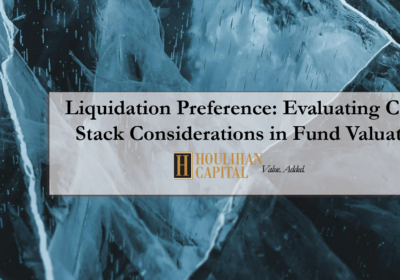What is the AIFMD?
The Alternative Investment Fund Managers Directive (“Directive”) became effective by European Union (“EU”) member states on July 22, 2013. The Directive introduces a new system for the marketing of alternative investment funds (“Fund”) in the EU and creates a legal framework to monitor and supervise alternative investment fund managers (“Manager”).
Fund Managers Subject to the Directive
The Directive will significantly change the regulatory framework for a wide spectrum of funds, including hedge funds and private equity funds. The new rules not only affect the Managers of Funds but also signal major changes for their administrators and external valuation agents.
The framework applies to Fund Managers that have their office in the EU with its provisions extending to the management of non-EU Funds by these Managers. The Directive also applies to Fund Managers based outside the EU borders which manage and/or market Funds in the EU.
Valuation requirements under the Directive
The Directive provides that a Manager must establish and maintain appropriate and consistent procedures concerning the valuation of a Fund. Under the Directive, a Manager will be responsible for ensuring that written valuation policies and procedures are established that clarify the valuation methodologies and the roles of various parties involved in the valuation process of the Fund.
The key issues to consider in relation to valuation provisions under the Directive are:
1. Which entities are permitted to carry out the valuation function;
2. the valuation procedures; and
3. the liability provisions in relation to the valuation function.
Who can perform the valuation function?
The valuation function may be carried out by the Manager itself, or it may appoint an external valuation agent. If the valuation work is done by the Manager, it needs to ensure that the process is functionally independent from the portfolio management and remuneration functions, and that measures are in place to mitigate conflicts of interest. If an external valuation agent is appointed, the Manager must be able to demonstrate that the agent is professionally recognized, has sufficient valuation experience, and is appointed pursuant to the delegation provisions of the Directive.
Valuation Procedures
The Manager is required to ensure that appropriate and consistent procedures are in place for the valuation of Fund assets on at least an annual basis. Regulations relating to the valuation measures to be implemented provide for the following:
1. Where a pricing model is used, information describing the pricing model is required to be disclosed, including the reason for the choice of model;
2. The Fund’s valuation policies and procedures should be reviewed at least annually;
3. The valuation policies and procedures should set out a review process for the individual value of assets where a material risk of inappropriate valuation exists;
4. The Manager should ensure that for each managed Fund, the valuation policies and procedures and designated valuation models are applied consistently; and
5. The Manager must determine the valuation methodologies that will be used for each type of asset in which the Fund may invest.
Liability of the Manager
Appointing an external valuation agent does not affect the liability towards the Manager and the Fund. The Manager remains responsible for the proper valuation of Fund assets, and the calculation and reporting of NAV.
Conclusion
The Directive allows for a fairly flexible valuation framework which is consistent with the diverse assets in which Funds can invest. Illiquid assets are difficult to value. Best practice dictates external valuation agents perform an independent valuation. Not only does a Fund mitigate conflicts of interest by appointing an external valuation agent, doing so has the added benefit of providing evidence that a Manager has fulfilled its fiduciary responsibilities to its investors. Fund Managers have until July 22, 2014 to apply for authorization under the Directive, which includes adhering to disclosure requirements and valuation processes.
Houlihan Capital can prepare and review a fund’s valuation policies and provide clients with independent valuations of geographically diverse assets ranging from single investments to multi-class portfolios. The firm has a history of working closely with regulators, auditors, third-party administrators, investors, and some of the world’s largest private investment funds.
Houlihan Capital is a leading, solutions-driven valuation, financial advisory and boutique investment banking firm committed to delivering superior client value and thought leadership in an ever-changing landscape. The firm has extensive experience in providing objective, independent and defensible opinions of value that meet accounting and regulatory requirements. Our clients include some of the largest asset managers around the world. Houlihan Capital is a Financial Industry Regulatory Authority (FINRA) and SIPC member, committed to the highest levels of professional ethics and standards.


